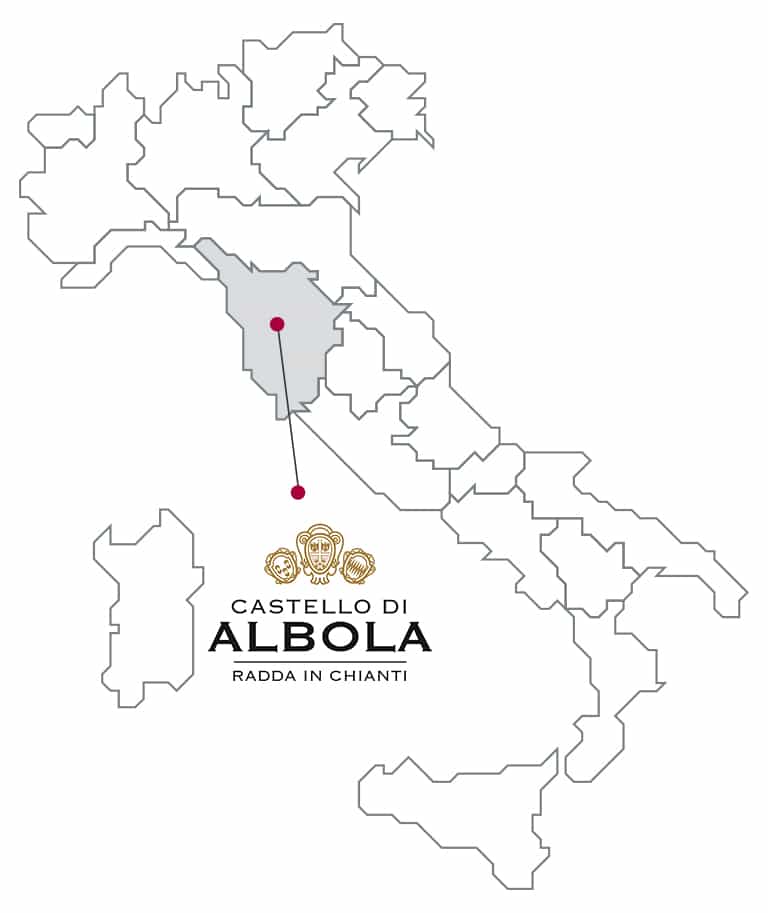
“The Highest Vineyard in Chianti Classico”
POINTS OF INTEREST
• The high altitude vineyards add a greater elegance, aromas, acidity, and more structured tannins to the Estate’s wines.
• The Acciaiuoli family of Florence built the Castle in the 15th century.
• The name “Chianti” derives from two possible words: the Etruscan family name, “Clantes”, who introduced grape growing to the region from the 7th and 8th centuries or from the sound “clangor”, which describes the blaring of trumpets used during the hunting season.
ESTATE
Name: Castello di Albola [Cass-tell-oh dal-bo-lah] is the name of the castle in the village of Albola.
Location: The property is situated only 30 minutes outside of Siena in the commune of Radda in Chianti. It has the highest elevation of any vineyard throughout the Chianti Classico DOCG appellation. There is a total of 2,100 acres, 390 of which are dedicated to vineyards.
Elevation: 1,150 ft. – 2,150 ft. above sea level
Soil: clay and limestone, with good drainage
Climate: continental, 39°F – 41°F in the winter and 86°F in the summer
Training System: Spurred Cordon, Guyot, and Double Tuscan Capovolto
Vine Density: 5,000 vines per hectare
Varietals: Sangiovese, Cabernet Sauvignon, Chardonnay, Canaiolo, Trebbiano Toscano, Malvasia del Chianti
HISTORICAL NOTES
The Castello di Albola Estate is situated in Radda at the heart of the Chianti Classico DOCG appellation, where the legacy of grape cultivation dates back to the time of the Etruscans. The Acciaiuoli family commissioned the estate to plant its lofty vineyard in Chianti Classico in the 15th century as a symbol of their high status. Over the centuries, many noble Tuscan families have owned the property, and the estate has earned various accolades for its wines. In 1979, the Zonin family acquired Castello di Albola promising to uphold the estate’s excellence for future generations. The wines produced in Castello di Albola have earned the iconic “Gallo Nero” symbol from the Chianti Classico Wine Consortium, which guarantees the highest standards in winemaking.












